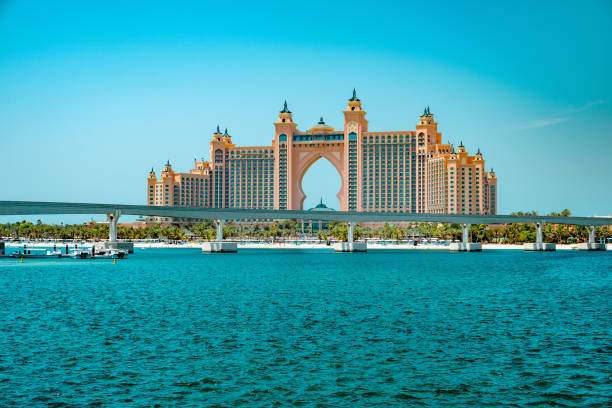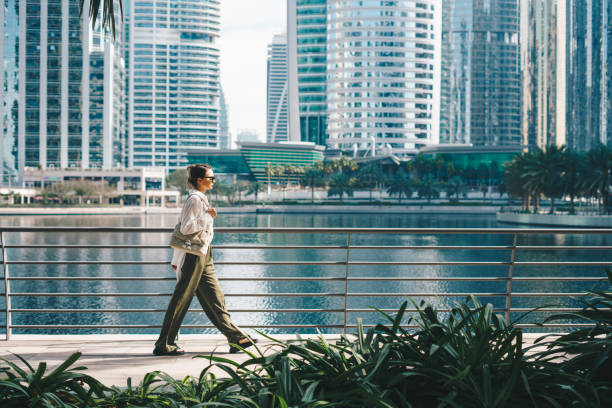Obtaining a residence visa in Dubai is a straightforward process that opens doors to a wealth of opportunities in one of the most dynamic cities in the world. This comprehensive guide will take you through the essential steps, eligibility requirements, and necessary documentation needed to successfully secure your residence visa in this vibrant locale. From the application process to understanding the benefits and potential pitfalls, everything you need to know is compiled in a structured format for your easy reference.
Understanding the Residence Visa in Dubai

What Is a Residence Visa?
A residence visa is an essential legal document that allows foreign nationals to reside in Dubai for various purposes, whether for employment, business, or family reunification. This visa is usually valid for one to three years, depending on the type you acquire. There are different categories of residence visas, including those for employees sponsored by a local employer, investors, and family members. Not only does this visa permit you to live in Dubai, but it also grants access to multiple benefits and services, such as opening bank accounts, obtaining driving licenses, and securing health insurance. It is crucial to understand the specifics regarding the residence visa as different circumstances may dictate varying application processes.
Benefits of Having a Residence Visa in Dubai
Holding a residence visa in Dubai comes with numerous advantages. Here are some of the key benefits:
- Legality: A residence visa ensures that you can live legally in Dubai without the constant worry of penalties or deportation.
- Employment Opportunities: With a valid residence visa, you can be employed in Dubai, opening up various job opportunities in a thriving economy.
- Access to Services: You can access essential local services, like healthcare and education, which are often tied to having a residency status.
- Sponsorship Capabilities: A residence visa enables you to sponsor family members, provided you meet the necessary financial conditions.
- Investment Possibilities: Investors benefit from a residence visa, as it allows them to establish businesses and property ownership in Dubai.
- Free Travel: With a residence visa, you can travel freely in and out of the UAE, making it easy to manage both personal and professional engagements.
Eligibility Criteria for a Residence Visa

Who Can Apply for a Residence Visa?
The eligibility to apply for a residence visa in Dubai generally hinges on a few critical factors. Foreign nationals looking to live in Dubai must have a legitimate reason to reside here, like securing employment, investing in a business, or reuniting with family members. Employees must have a job offer from a recognized company in Dubai, while investors are required to invest a minimum amount as outlined by UAE regulations. Family members, including spouses and dependents, can be sponsored by an individual holding a residence visa, which adds an additional layer of complexity to the application process. It is also vital for applicants to maintain good conduct, as criminal records can impact your eligibility. Understanding these criteria is paramount, as they serve as a foundation for the application process, ensuring that only qualified individuals gain residency.
Required Documents for Application
When applying for a residence visa in Dubai, several documents are essential to ensure a smooth process. The common requirements include:
| Document Type | Description |
|---|---|
| Passport Copies | Scanned copies of your passport and that of any family members you are sponsoring. |
| Emirates ID Application | A completed application for an Emirates ID, which must be submitted along with the visa application. |
| Health Insurance | Proof of health insurance coverage as per UAE regulations. |
| Employment Contract | For working residents, a copy of your employment contract is mandatory. |
| Financial Statements | Evidence of financial solvency, especially for investor or sponsorship categories. |
Application Process for a Residence Visa

Steps to Apply for a Residence Visa
The application process for obtaining a residence visa in Dubai is systematic and can be broken down into several critical steps. Here’s a simplified list of steps involved:
- Prepare all required documents as outlined above.
- Submit your application through the relevant channels, which could be online or at government offices.
- Pay the applicable fees associated with the visa processing.
- Undergo mandatory medical checks as required by the Dubai Health Authority.
- Wait for approval, which can take between 2 to 4 weeks.
- Receive your residency visa once approved, along with the Emirates ID.
Common Application Mistakes to Avoid
While applying for a residence visa in Dubai, avoiding common pitfalls will help streamline your experience. Here are some frequent mistakes applicants make:
- Inadequate documentation—failing to provide all required documents can lead to application rejection.
- Incorrect payment—make sure to verify the correct processing fees to avoid unnecessary delays.
- Delayed medical checks—procrastinated medical tests can elongate the application timeline.
- Incomplete forms—always double-check that all sections of your application are filled out accurately.
- Overlooking deadlines—be mindful of any expiration dates on documents or application windows.
Renewal and Cancellation of Residence Visa
How to Renew a Residence Visa
Renewing a residence visa in Dubai is an important procedure that must be conducted before the actual visa expires. Generally, you should start the renewal process at least 30 days prior to the expiration date. The documents needed for renewal may include your original passport, a copy of your current residence visa, proof of health insurance, and any requisite application forms. The renewal can often be handled online, which simplifies the process greatly; however, in some instances, you might need to visit an immigration office. Upon submission, your application will undergo a similar review process as the initial visa application, including medical testing. It’s imperative to keep tabs on the renewal status by regularly checking the online portal to avoid any complications.
Cancellation Process for a Residence Visa
Should you decide to leave Dubai or wish to change your residency status, you must go through the official cancellation process for your residency visa. This involves providing necessary notification to the immigration authorities and submitting pertinent documents, such as your original residence visa and passport. The application for cancellation can be initiated by the visa holder or their sponsor, depending on the visa category. Typically, cancellation can be executed online or at government offices, ensuring an efficient process. It’s important to note that any pending legal issues, such as fines or outstanding debts, may complicate this cancellation. Furthermore, the timely cancellation of your visa is essential, as failing to do so can lead to legal penalties and affect future visa applications.
Concluision
Obtaining a residence visa in Dubai is a structured process that requires adherence to specific regulations and documentation. This guide has outlined the essential aspects of this journey, including eligibility, application procedures, and renewal protocols. Understanding these elements will help ensure a smooth transition to life in this vibrant city. Equipped with the right knowledge and preparation, you can successfully navigate the steps needed to secure your residence visa. Whether you are relocating for work or seeking new opportunities, the benefits of obtaining a residence visa in Dubai far outweigh the complexities of the application process.
Frequantly Asked Questions
1. How long does it take to obtain a residence visa in Dubai?
The process typically takes between 2 to 4 weeks, depending on the complexity of your application and the efficiency of document submission.
2. Can I work with my residence visa in Dubai?
Yes, a residence visa allows you to work in Dubai, provided you have a work permit from your employer.
3. Is it possible to sponsor family members with a residence visa?
Yes, residence visa holders can sponsor their family members, subject to meeting specific salary and housing criteria.
4. What are the costs involved in obtaining a residence visa?
Costs may vary based on the type of residence visa, but applicants should be prepared for fees related to medical tests, visa processing, and possibly a security deposit.
5. Can I exit Dubai and return while my residence visa is being processed?
No, if you leave the country while your residence visa is in process, it may invalidate your application. You’ll need to reapply for the visa upon returning.


